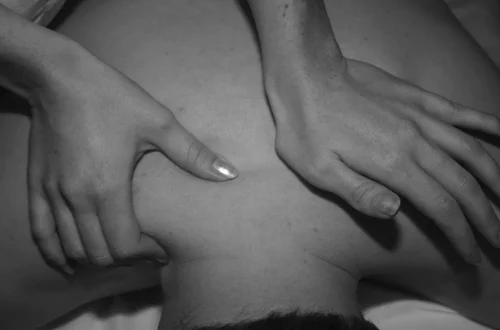
Caring for Your Citrus Bearded Dragon: A Complete Guide
Caring for a Citrus Bearded Dragon requires not only knowledge of their specific needs but also a deep appreciation for their unique behaviors and personalities. These fascinating reptiles, known for their vibrant colors and friendly demeanor, have become increasingly popular as pets. Understanding their natural habitat and diet is essential in replicating an environment that promotes their well-being.
Citrus Bearded Dragons, which are a morph of the common bearded dragon, thrive in a carefully controlled environment that mimics their native Australian habitat. These lizards exhibit a range of behaviors that can be endearing and amusing, making them an engaging companion. Proper care involves not only providing the right temperature and humidity levels but also ensuring that they receive a balanced diet rich in nutrients.
As they grow, their needs will change, requiring pet owners to adapt their care strategies accordingly. Social interactions, enrichment activities, and environmental factors play a significant role in their health and happiness. This guide aims to illuminate the key aspects of caring for your Citrus Bearded Dragon, ensuring that you can provide a long and fulfilling life for your scaly friend.
Creating the Ideal Habitat
To ensure your Citrus Bearded Dragon thrives, you must create an environment that closely resembles its natural habitat. This involves selecting the right enclosure and maintaining proper temperature and humidity levels. A glass terrarium is typically the best choice, providing ample space for your dragon to explore and bask. A 40-gallon tank is recommended for adults, while juveniles can thrive in smaller enclosures.
When setting up the terrarium, use a substrate that is safe and easy to clean. Options like reptile carpet or paper towels work well, as they reduce the risk of impaction from ingesting loose substrates. Additionally, incorporate various climbing structures such as branches or rocks, allowing your dragon to exercise and explore its surroundings.
Temperature regulation is critical for a bearded dragon’s health. Establish a temperature gradient within the habitat, with a basking area heated to around 100-110°F (37-43°C) and a cooler side maintained at approximately 75-85°F (24-29°C). Using a UVB light is essential, as it helps your dragon synthesize vitamin D3, which is vital for calcium absorption. Ensure that the UVB bulb is replaced every six months to maintain its effectiveness.
Humidity levels should remain relatively low, generally between 30-40%. You can monitor humidity using a hygrometer. If you find the levels are too low, misting the enclosure lightly or providing a small water dish can help. However, be cautious not to create a damp environment, as this can lead to respiratory issues and other health problems.
In summary, creating an ideal habitat for your Citrus Bearded Dragon is crucial for its overall health and well-being. A suitable enclosure, proper temperature, and humidity levels, along with safe substrate and enrichment options, will ensure that your pet can thrive in a comfortable and stimulating environment.
Nourishing Your Bearded Dragon
A balanced diet is fundamental to the health of your Citrus Bearded Dragon. In the wild, these lizards are omnivorous, consuming a varied diet of insects, fruits, and vegetables. Replicating this diet at home will help you meet their nutritional needs and keep them happy and healthy.
For juvenile bearded dragons, insects should make up the majority of their diet. Crickets, dubia roaches, and mealworms are excellent protein sources. It’s important to ensure that the insects are appropriately sized—generally no larger than the distance between your dragon’s eyes. You can also dust the insects with a calcium supplement before feeding to promote bone growth and prevent metabolic bone disease.
As your bearded dragon matures, you can gradually introduce more plant-based foods. Leafy greens, such as collard greens, mustard greens, and dandelion leaves, should be staples in their diet. Fruits like strawberries, blueberries, and mango can be offered as treats in moderation. Avoid feeding them iceberg lettuce, as it has little nutritional value and can cause digestive issues.
It’s crucial to provide fresh food daily and remove any uneaten items to prevent spoilage and bacteria growth. A shallow dish of water should always be available for hydration. While bearded dragons are not known for being avid drinkers, they may soak in their water dish occasionally, which can contribute to their hydration.
Monitoring your dragon’s weight and overall appearance can help you assess whether their diet is effective. A healthy bearded dragon should have a rounded belly, clear eyes, and active behavior. Always consult with a veterinarian specializing in reptiles if you notice any changes in appetite or weight, as these can be signs of underlying health issues.
In conclusion, a diverse and balanced diet is vital for your Citrus Bearded Dragon. By providing a mix of high-quality insects and fresh vegetables, you’ll support their growth, energy levels, and overall health.
Understanding Behavior and Socialization
Citrus Bearded Dragons are known for their unique personalities and behaviors. Understanding these behaviors is essential for fostering a strong bond with your pet and ensuring its well-being. Bearded dragons are generally friendly and social creatures, often enjoying interaction with their owners.
One of the most common behaviors observed is basking. Bearded dragons love to soak up heat and UVB rays, which are essential for their health. You might notice your dragon spending significant time in the basking area, and this is perfectly normal. During cooler parts of the day, they will likely move to the cooler side of the habitat to regulate their body temperature.
Socialization is critical for a bearded dragon’s mental health. Handling your dragon regularly will help it become accustomed to human interaction. Start slowly, allowing your dragon to explore your hand before lifting it. Avoid sudden movements, as they can startle your pet. Always support its body properly when holding it to make it feel secure.
Recognizing signs of stress is also vital. If your bearded dragon displays behaviors such as puffing up, tail whipping, or hiding, it may feel threatened or uncomfortable. Providing a safe space where your dragon can retreat when feeling stressed is essential for its mental well-being.
Social interactions with other bearded dragons should be approached with caution. While some may enjoy the company of their own kind, others may become territorial or aggressive. If you choose to introduce another dragon, monitor their interactions closely and be prepared to separate them if necessary.
In summary, understanding and respecting the unique behaviors of your Citrus Bearded Dragon is crucial for fostering a strong bond and ensuring its happiness. Regular socialization, recognizing signs of stress, and creating a comfortable environment will help your pet thrive.
Health Care and Regular Check-ups
Regular health care is critical to the well-being of your Citrus Bearded Dragon. Being proactive about their health can help prevent many common issues associated with captivity. Routine check-ups with a veterinarian who specializes in reptiles are essential for monitoring your dragon’s overall health.
During these check-ups, the veterinarian will perform a thorough examination, checking for signs of parasites, respiratory issues, or other health concerns. It’s advisable to bring a sample of your dragon’s stool for fecal analysis, as this can help detect internal parasites that may not be visible during the physical exam.
Proper husbandry practices significantly reduce the risk of health problems. Ensure that your dragon’s habitat is clean and well-maintained, as a dirty environment can lead to skin infections and other health issues. Regularly cleaning the enclosure and providing fresh water and food will help prevent bacterial growth.
Be mindful of signs that may indicate health problems. If your bearded dragon shows a lack of appetite, lethargy, or unusual behavior, it may be time to consult a veterinarian. Additionally, keep an eye on their shedding process. Shedding should occur regularly and evenly; if your dragon appears to have retained skin, it could lead to health complications.
Always be cautious about any changes in your dragon’s appearance or behavior, as these can be early indicators of health issues. Prompt attention to these changes can be crucial in addressing any underlying medical concerns.
In conclusion, maintaining a routine health care plan for your Citrus Bearded Dragon is vital for its longevity and quality of life. Regular veterinary check-ups and proper husbandry practices can help prevent health issues and ensure your pet remains happy and healthy.
**Disclaimer:** This article is for informational purposes only and is not intended as medical advice. Always consult a qualified veterinarian for any health-related concerns regarding your pet.




